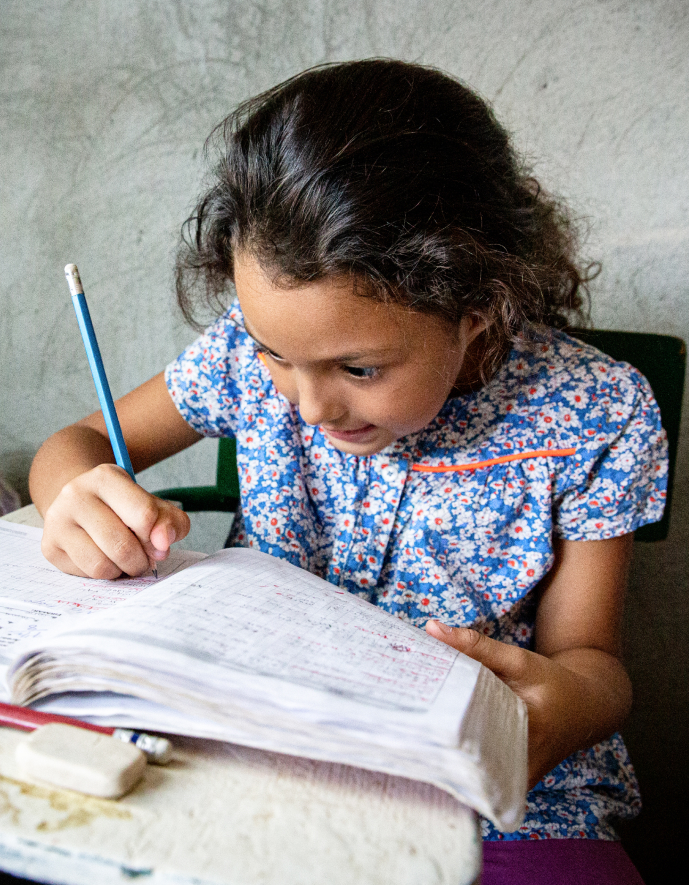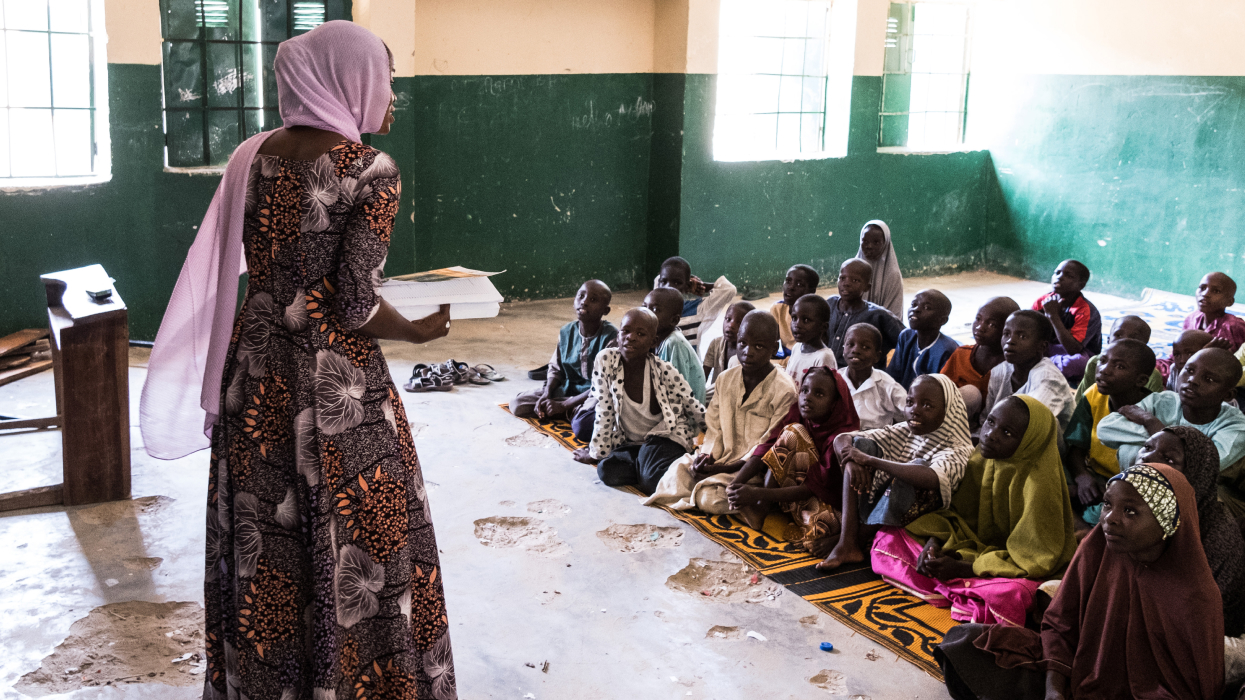
Education
Providing access to learning for children during crisis
The Problem
Millions of children in humanitarian contexts can’t go to school, and even those that can miss critical milestones in math and reading. Violent conflict, natural disasters, and other crises prevent children attending a school from learning. Less than 3% of all humanitarian funding is earmarked for education.
Why current approaches are inadequate
Children in crisis-settings cannot access any learning infrastructure due to the destruction of schools or unsafe commutes. Many solutions for education aid rely on physical infrastructure and take too long to build, children fall behind or drop out entirely before they can even access them.


Our solution
Airbel focuses on three core pillars to ensure our innovations have positive impact, are efficient, drive equity, and can be delivered at scale: localized innovation, platform-based approaches, and research and development.
To quickly fill gaps in education during an acute crisis, we are 1) deploying bite-size personalized educational content through an AI-driven chatbot on widely-used messaging platforms, and 2) providing teachers and caregivers with regular updates on student learning so they can provide follow-up support.
Shifting the status quo
Evidence from the the education field suggests that it’s more important to match educational students learning levels than their age or existing grade. Until now, this concept hasn’t been able to be applied in humanitarian contexts at scale. Advances in A.I. can fix this issue by unlocking personalization at an unprecedented scale. Our aim is for all children living in acute crises to have access to quality education within 30 days of the onset of a crisis, improving learning outcomes and ensuring no generation is left behind.
Related Projects
A learning assessment of in and out-of-school Venezuelan refugee children and their Colombian 1st to 5th grade counterparts in Cucuta
Educators and policymakers in the region lacked evidence about the learning needs of Venezuelan child refugees. With support from the Tinker Foundation, the IRC conducted a learning assessment in Cucuta to fill this information gap.
Explore ProjectaprendIA
aprendIA is an AI-driven chatbot platform that delivers educational and learning experiences through messaging platforms, enabling children to learn anytime, anywhere, and on any device.
Explore ProjectAudioClass System
Automating education to reach out-of-school adolescents with low technology access
Explore ProjectCoach Erevu
Empowering teachers to adopt new behaviors that support children’s learning and development.
Explore ProjectEdTech Global Landscape Analysis
Trends from the present and near future of technology-enabled learning
Explore ProjectEducation Research in Conflict and Protracted Crisis (ERICC)
Building a global hub for a rigorous, context- relevant and actionable evidence base that can transform education policy and practice in conflict and protracted crisis
Explore Project
Latest Updates
-
aprendIA website
External link -
Mapping the World's Innovations in Education Technology
External link -
Humanitarian EdTech Innovation Toolkit: Tools and insights for innovating with technology-based education in a humanitarian context
External link